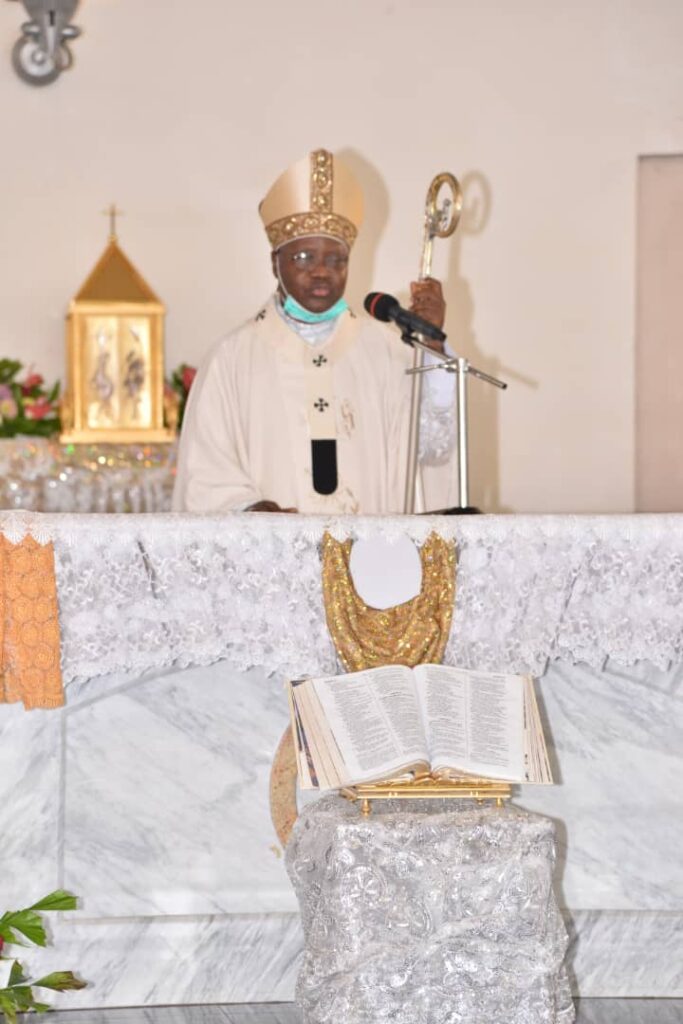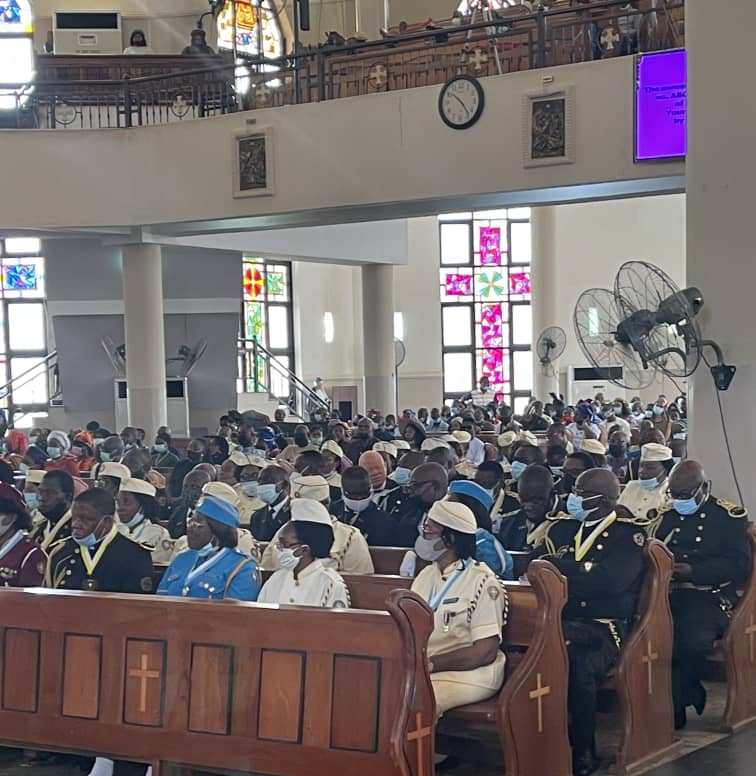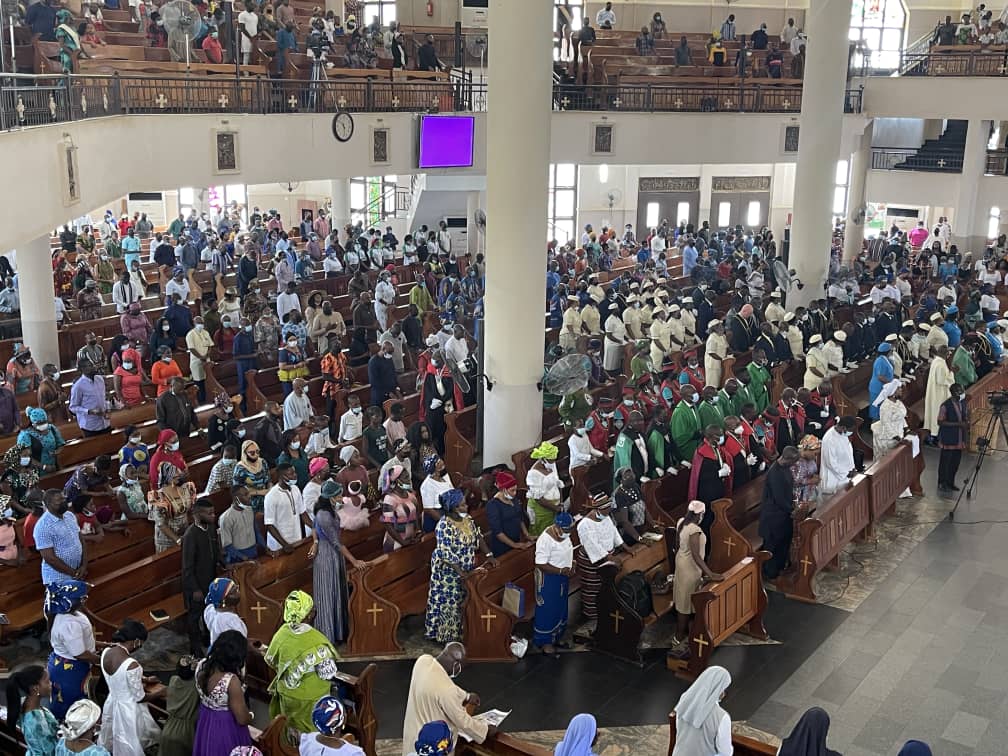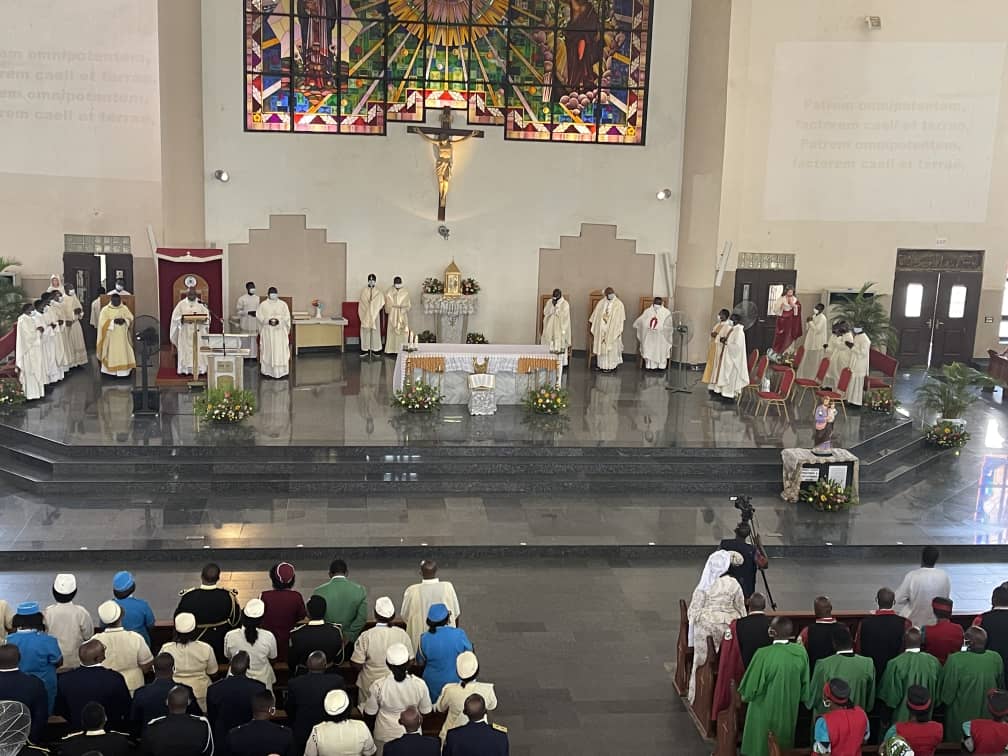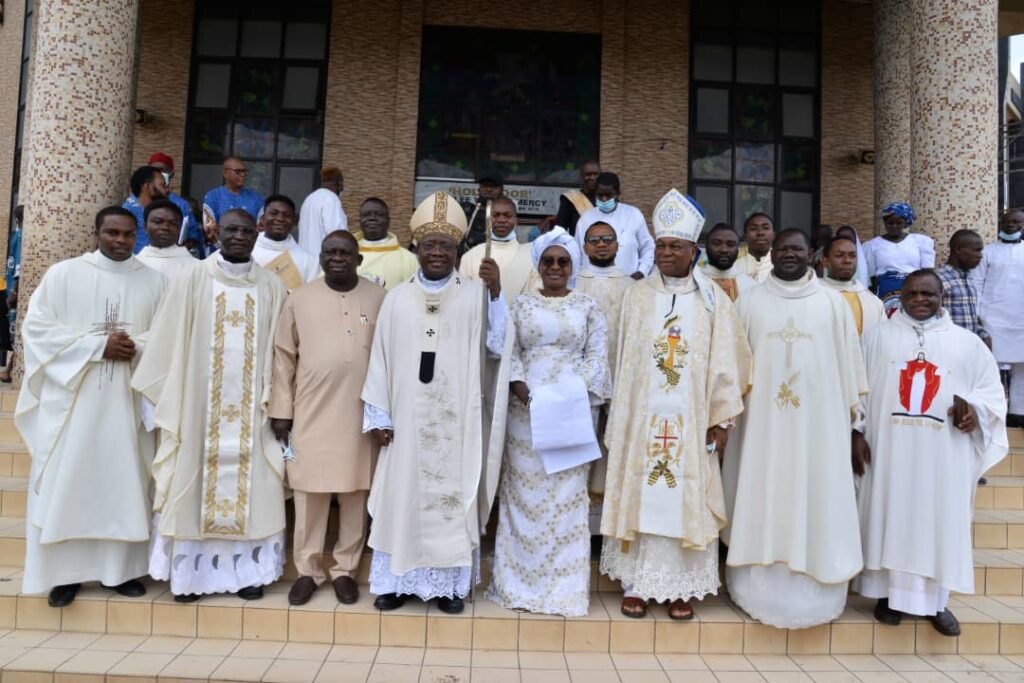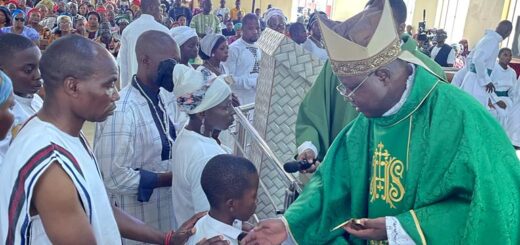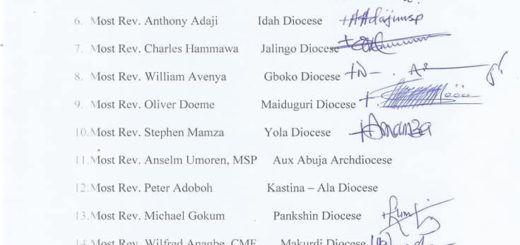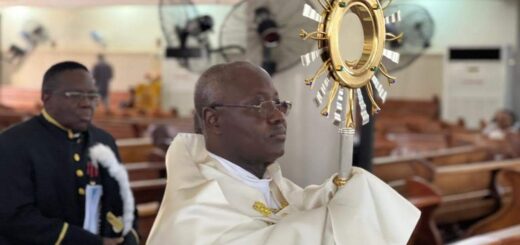Getting the best from Participating in the Eucharist
by ARCH BISHOP · June 6, 2021
Solemnity of Corpus Christi. Homily by Archbishop I. A. Kaigama at Pro-Cathedral, Abuja. June 6, 2021.
Readings: Ex. 24:3-8; Ps. 116: 12-13, 15-18; Heb. 9:11-15; Mk. 14: 12-16, 22-26
The word “Eucharist” comes from Greek, which means “thanksgiving.” Today I am thanking God at this Mass because forty years ago on a day like this, at about this same hour, at St. Augustine’s Catholic Church, Jalingo, Taraba State, I was ordained a Catholic priest, at the hands of late Bishop of Yola, Most Rev. Patrick Francis Sheehan, OSA. I intentionally did not invite people for a formal celebration today because I hope that in November when the Ecclesiastical jurisdiction of Abuja will be forty years we can have a joint celebration. I am so glad that you joined me today to say “na gode Allah”. God bless you abundantly.
Since my ordination, the Eucharist has been my sustaining force, my soothing balm, and my source of both spiritual and physical energy and my motivation to forge ahead in my priesthood despite the challenges from within and without. The Eucharist is the noblest of all gifts to me. In the last forty years it has been the oxygen of my priesthood.
It is our firm belief that in accordance with the command of Jesus, a validly ordained priest or bishop, acts in persona Christi. As he recalls the words and gestures of Jesus Christ at the Last Supper and pronounces the words of consecration at every Mass, the bread and wine are changed by “transubstantiation” into the body and blood of Jesus. The epiclesis (invocation) is the calling down of the Holy Spirit on the bread and wine which changes the substance of the bread and wine to the body and blood of Jesus, even if the size, colour, taste, texture and shape remain the same.
I often see people rushing into the Church for Mass and some for private adoration of Jesus in the Blessed Sacrament. When I visit some rural areas many lay people ask to have access to the Holy Mass regularly, because they say that they receive strength, inner peace and assurance of God’s healing and comfort from it. Our Gospel today is about this great gift of the body and blood of Jesus shared to His disciples.
Participating in the Eucharist means there is no room for individualism. It is a meal of love and unity that excludes no one, no matter how socially disadvantaged. The Eucharist has remained for Catholics the effective balm and medicine even during very violent storms, persecution, controversy, scandalous behaviours arising from human weakness.
For a worthy participation in the Eucharist, there must be repentance. At the Confiteor we strike our chest saying: “through my fault, through my fault, through my most grievous fault”. Sacramental confession is a necessary preparation for the reception of the Eucharist (cf. 1 Cor. 11:27-29).
The Solemnity of Corpus Christi as instituted by Pope Urban IV in 1264, is to promote devotion and adoration to the Real Presence of Christ in the Eucharist. We do not need to see Jesus like Thomas before believing. In faith we believe that Christ is present body and blood, soul and divinity in the consecrated bread or wine.
Like the Centurion in Matthew 8:8, we are not worthy to receive Jesus but we have been given the amazing privilege to have Him under the roof of our mortal bodies (cf. Jn. 6:53-59). By eating His flesh and drinking His blood (cf. Jn. 6:56), we experience His healing and transforming love.
To benefit from the Holy Mass we must prepare well by regular confession, come early for Mass; be in a prayerful silent mood (sing and dance, but aware that we are in the presence of the Lord). Avoid the uncontrolled use of cell phone or cameras during Mass. The liturgy is not a “show time” or a picnic where worshippers exhibit their stylish disco dance and preachers demonstrate their skills of oratory, accompanied with acrobatic displays, to impress worshippers.
When the priest says, “Go the Mass is ended,” he means that you go and live out the practical implications of the sacrament of love, peace and unity; to care for the poor, needy and disadvantaged and to promote social cohesion and harmonious coexistence, in a society saturated with hatred, anger, revenge, rivalry and violence.
As we need spiritual food, so we also need daily physical bread. However, in a situation today when farmers are unable to go to farm due to fear of attacks and killings by bandits, kidnappers and terrorists, our food supply will be grossly limited. I hope the government will be proactive with palliatives for the inevitable hunger that will result from this. A hungry man is not only angry but is today uncontrollably violent.
On my fortieth anniversary of priesthood I wish to thank all of you who have been there for me for your inestimable support, generosity of time and resources. Immense gratitude to my late parents and my family, teachers, colleagues, collaborators and well wishers. For my failures as a person and a priest I seek God’s forgiveness and those who felt or feel offended and aggrieved by my personality, actions and utterances, I beg for their understanding and forgiveness. Please know that I mean no evil. Continue to bear with me till the Lord’s time comes. Some of those closely associated with me have suffered for my sake. The Lord will reward you. The thieves who stole all my ordination gifts on the night of my priestly ordination, I hope God’s grace has changed you after forty years. To my pioneer Diocese of Jalingo and my former Archdiocese of Jos where I felt greatly supported in my priestly ministry, I say a “grand merci”. To my new family in Abuja Archdiocese, may the Lord continue to bind us strongly together for the service of His Kingdom. So far, so good. Thank you so very much. God bless you all.
